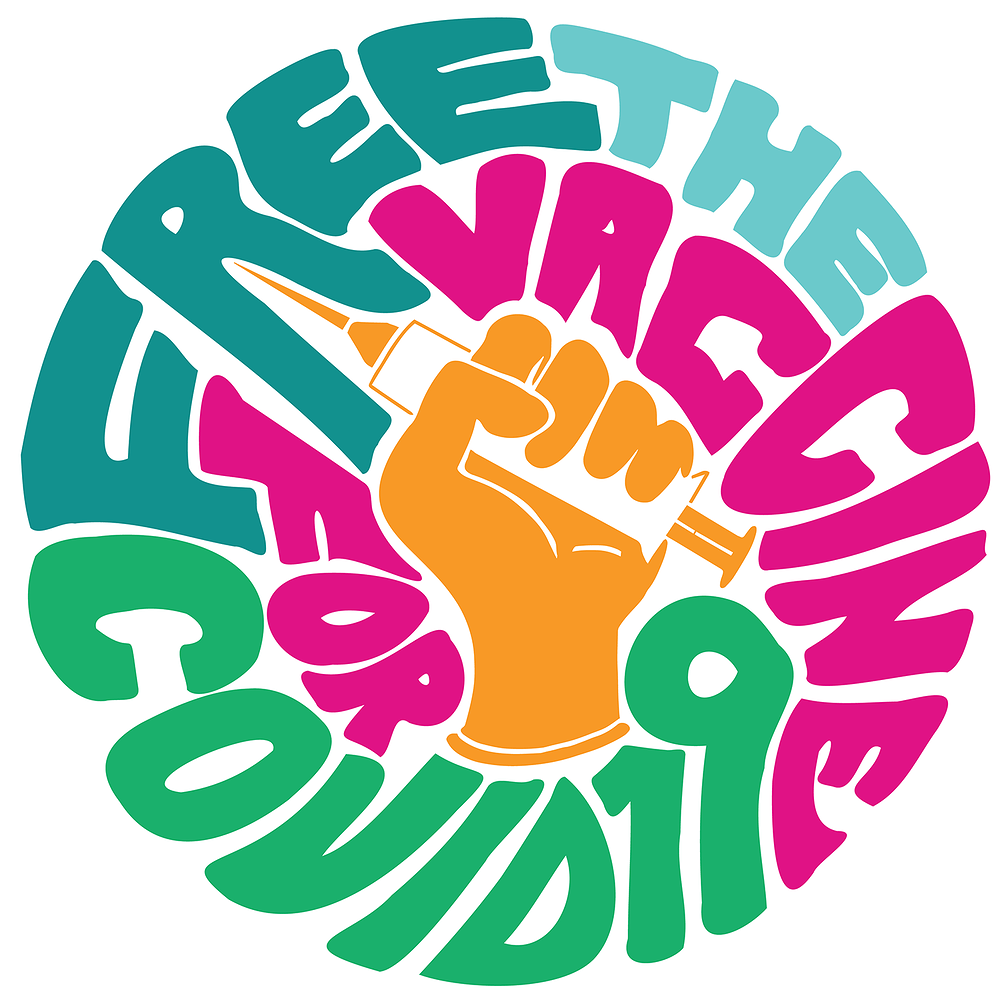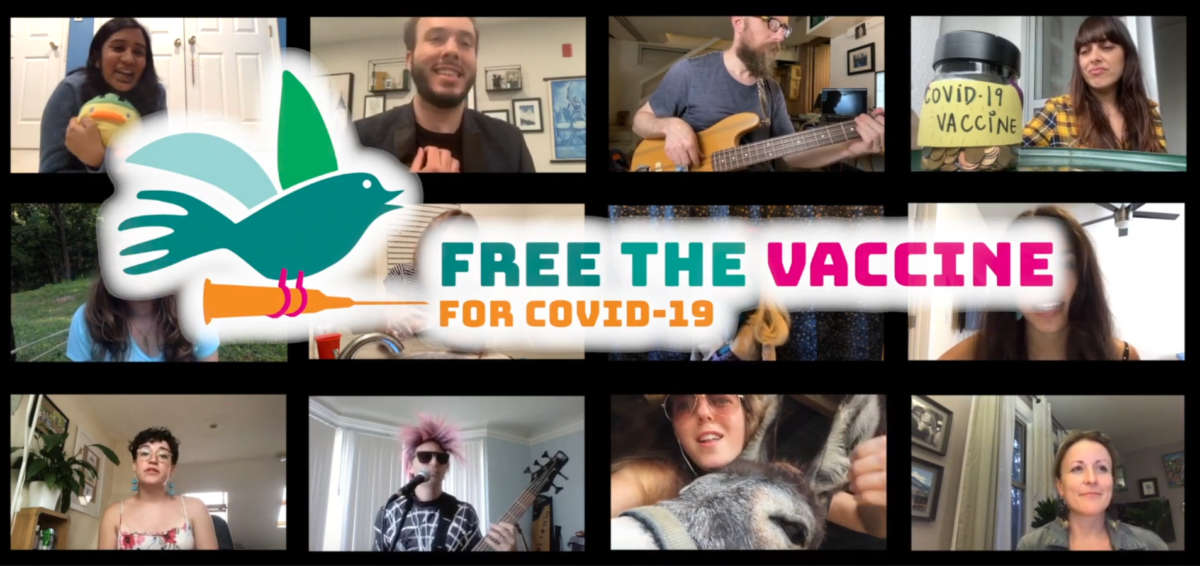The need for global solidarity is now stronger than ever. Communities across the globe must have equitable access to diagnostic tools, treatments, and vaccines for COVID-19.
Governments have invested billions of tax-payer funds into research and development to save lives from the virus. We should not have to pay again.
COVID-19 diagnostic tools, treatments, and vaccines must be free from patents and available to everyone everywhere, free at the point-of-delivery.
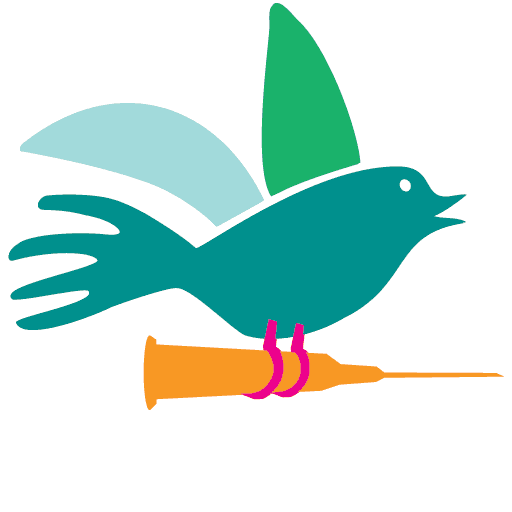
We are a collective of volunteers – artists, health workers, students, activists – from 29 countries around the world, working from our homes during the COVID-19 pandemic. The project is led by two non-profit organizations; Universities Allied for Essential Medicines and the Center for Artistic Activism, to date using general operating funds and individual donations.
About The Salk Labs: Free the Vaccine for COVID-19
The Issue: What’s the Problem We’re Addressing?
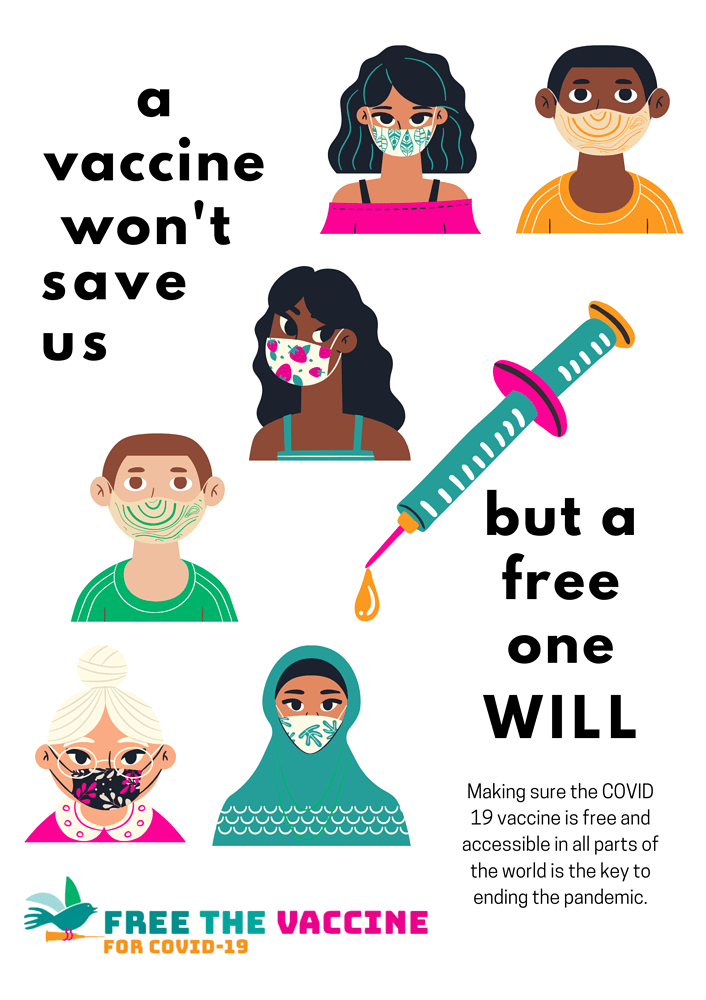
It’s hard to imagine the day we read the headline “Equitable, Global Access to COVID-19 Vaccines Achieved.” As pharmaceutical companies hold close their intellectual property and rich countries secure vaccines for their own use, much of the world remains without access. However, as with the HIV/AIDS epidemic, history has shown that the world can come together to ensure access to life-saving medicines for everyone. This required an incredible amount of organizing and activism, however, and we are up for that challenge.
The problem is this: will everyone have access to it? Without affordable access for everyone, across the globe, the vaccine can’t really do its job. Governments have invested billions in tax-payer funds into the research and development of diagnostic tools, treatments, and vaccines for Covid-19. Since the SARS outbreak, the National Institutes of Health alone has spent nearly $700 million on coronavirus research and development. And now, pharmaceutical corporations want us to pay again to acquire it. This means that payment is being demanded for something already paid for from public funds. It also means that not everyone will be able to afford access.
More urgently than ever the global need for collaboration and solidarity is being felt by people who had never before paid attention to these issues. Almost everyone, everywhere is waiting for drugs and vaccines that can change lives, history and the current narrative. And an urgent question needs to be answered: how do we ensure access for all?
Communities Served
People from all backgrounds, ethnicities, levels of status and wealth have been impacted by Covid-19. We are all vulnerable, but not all of us equally. Our goal is to ensure the vaccine is freely accessible to everyone in the world. Our primary targets include: 1) university faculty who can pressure their institutions to be socially responsible in patenting and licensing of publicly funded medicines like vaccines developed in university labs, 2) Ministers of Health or other funding bodies, and 3) Pharmaceutical CEOs.
When we win, the people who will benefit will be residents of entire nations, often those historically written off by pharmaceutical providers because they are too poor to profit off of. When we win, uninsured residents of wealthy nations will have a chance to survive. When we win everyone benefits because flattening the curve isn’t enough – we can only eliminate the curve after everyone is vaccinated.
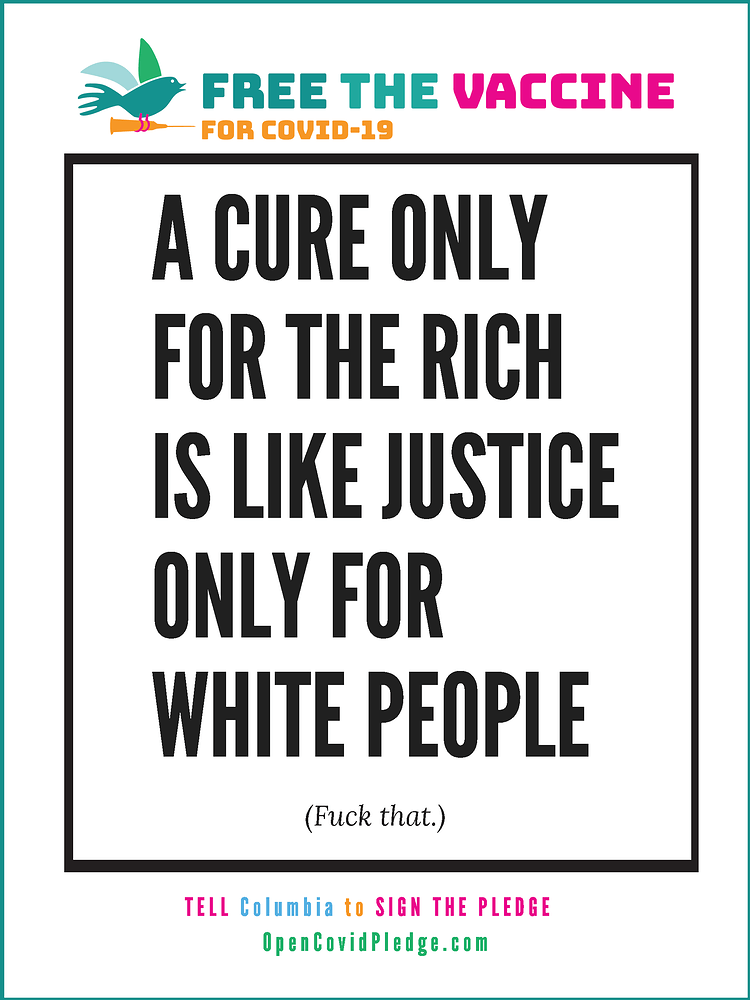
Strategy: How Does it Work?
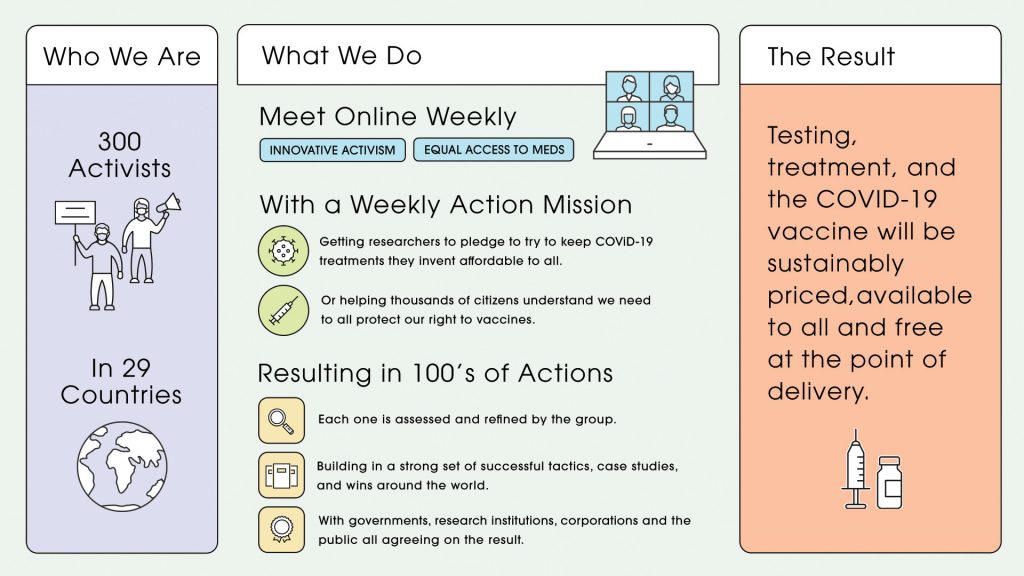
Each week, Lab participants meet online for training and lessons from special guest experts who have successfully fought for equal access to medicines. Then the participants do weekly assignments in small teams to both learn more and to perform action experiments.
The social-political landscape has fundamentally shifted. We won’t win through old methods – holding up signs at a traditional crowded protest march is not an option. So we’re finding new, better ways that work in our current context through an “Advocacy Innovation Lab.” While the virologists are working in their lab developing a vaccine, we’re working in ours making sure that vaccine is freely available.
We plan to learn new ways to promote equity in access to medicines…while developing and building a grassroots movement ready to implement them.
We implemented a global program designed for the time of physical distancing with weekly online courses on innovative advocacy and best practices in access to medicines advocacy. From 300+ volunteers we have formed “Salk Squads” of 4-6 people (named after Jonas Salk who gave the vaccine for polio to the world).
Each week, Lab participants meet online for training and lessons from special guest experts who have successfully fought for equal access to medicines. Then the participants, in small teams of 4-7 that are regionally-based, do weekly assignments to both learn more and to perform action experiments. They may experiment with narratives and ways to use social media to encourage health officials to pledge to support equal access to treatment. They may test social distancing performances that encourage people to pressure their governments. Over the course of 4 months, hundreds of actions will be implemented, and each group will be guided to reflect and refine their actions in order to learn from them and share with others.
Their advocacy experiments and results are shared within regional groups where they are collaboratively evaluated and refined with an assigned mentor. Successful tactics are shared across all the regions so they can be iterated upon and deployed globally. We plan to learn new ways to promote equity in access to medicines from this massive number of experiments and assessments, while developing and building a grassroots movement ready to implement them. The methods, case studies and best practices will be shared with the public to encourage use by anyone.
Impact
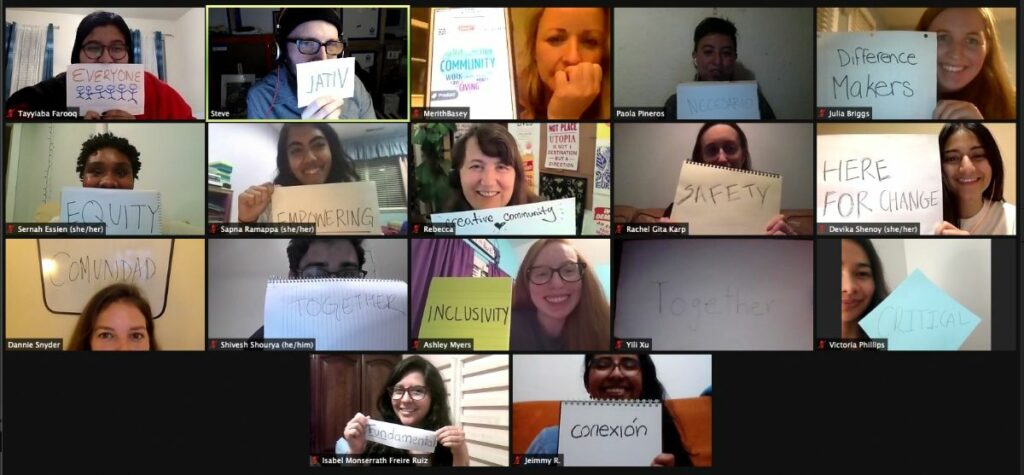
Already the impact of the campaign can be felt in our participants. Hundreds of people are remotely coordinating, planning and working together to ensure global equity in access to medicines. Within days of our initial announcement we had over 600 sign up, and since then over 300 volunteers have continued to work on the campaign each week. They are from 29 countries on every continent (except Antarctica!). They are young (79% are under 45), 66% identify as women, 60% as activists, and 36% as artists or designers.
We believe in this campaign’s future impact because, while it is a new and innovative concept in massive, rapid online organizing based on creativity and experimentation, it is built on many years of work by organizations with excellent track records.
C4AA has helped thousands of people create successful advocacy campaigns around the world, and helped organizations and funders create visionary strategies that combine the best practices of arts and activism. Their research and publications demonstrate the astonishing impact of putting innovation, culture and creativity at the core of change.
UAEM has the depth of technical knowledge on alternative R&D mechanisms, licensing and global health. With over 100 chapters in more than 20 countries across the world, UAEM students work has successfully influenced policies at universities in order to ensure that products of biomedical research and development are made available to and affordable to the people who need them most.
Innovation: What makes this approach distinguishable from other efforts?
This project is specifically designed to respond to this moment, facing its uncertainty with a movement that thrives on innovation, action, and collaboration. This is unique and groundbreaking for the access-to-medicines movement, which for the last decade has been heavily technical in their search for solutions to the access challenge.
Our entire program is aimed at propelling innovation in advocacy by emphasizing rapid, crowd-sourced experimentation and creativity. While traditional advocacy methods can rely on fact sheets and petitions, research shows that narrative, surprise, and creativity is more effective in the cultural and social change that propels policy change. And yet few advocacy groups know how to use those tools.
Center for Artistic Activism has been helping advocacy groups do this work for over a decade, and this is the largest, most concerted effort to date to apply the research and methods to a global campaign.
We are reaching and mobilizing people confined to their homes but desperately wanting to collaborate and use their diverse skills to ensure everyone has the care they need. This could be remembered as a moment in history that is about fear, isolation and suspension. This project counters with hope, collaboration, and innovation.
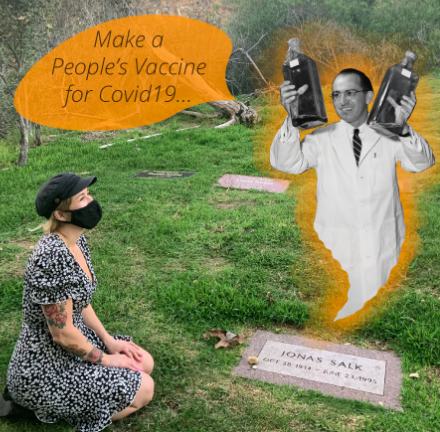

Suitability: What makes our organizations the right ones to address this issue?
This project is a partnership between the Center for Artistic Activism and Universities Allied for Essential Medicines.
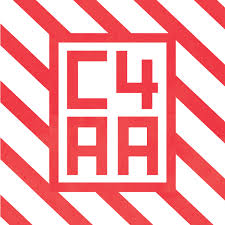
C4AA has led dozens of workshops, in 20 countries with 2000+ people helping them use their creativity and culture to affect power. They’ve moved public health campaigns forward and conducted groundbreaking research on the impact of creative activism. This campaign is built on the successes of a similar anti-corruption program with artists, activists, and investigative journalists in the Western Balkans and West Africa.
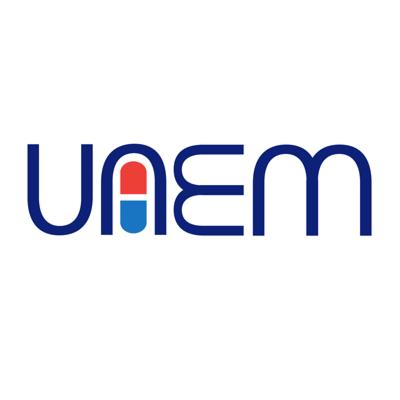
UAEM has grown from a North American movement, with its origins in the HIV/AIDS movement, to a truly global one, encompassing regions with contrasting needs and contexts, working collaboratively towards a global objective of making medicines accessible to all. The COVID-19 crisis has revealed hard truths about the world’s preparedness in face of a global pandemic including responses that feed social inequalities and increased oppression of marginalised communities.
Long-Term Vision: If we’re successful, how will the issue be impacted?
Our specific vision is to empower citizens to replace a medical R&D system that favors profit over people with already existing alternative models.
We’re training hundreds of people in how to become the cutting-edge, creative activists of the future. Each will have the tools to develop innovative campaigns that can overcome a variety of obstacles, and build movements with everyday people, through accessible tactics, that embody local cultures, vibrancy, and life.
Our specific vision is to empower citizens to replace a medical R&D system that favors profit over people with already existing alternative models. Pharmaceutical corporations develop profitable drugs, not medication in the public interest. C been researched for years with billions in public funds, but until a pandemic emerges, there’s no profit motive for pharmaceutical corporations to initiate testing, treatment, or vaccines. We are living within a system that has obviously failed. Hundreds of thousands have died and will die because of it. What must replace the current model is an ethical, human driven R&D system where publicly funded research leads to needed and affordable treatments. UAEM has mapped 81 alternative R&D models that were included in the UN’s High Level Report on Access to Medicines in 2016.
COVID-19 is undeniably shaping our future. Let’s make this the catalyst: transforming our access to medicines and improving millions of lives with it.
For more information contact us.
